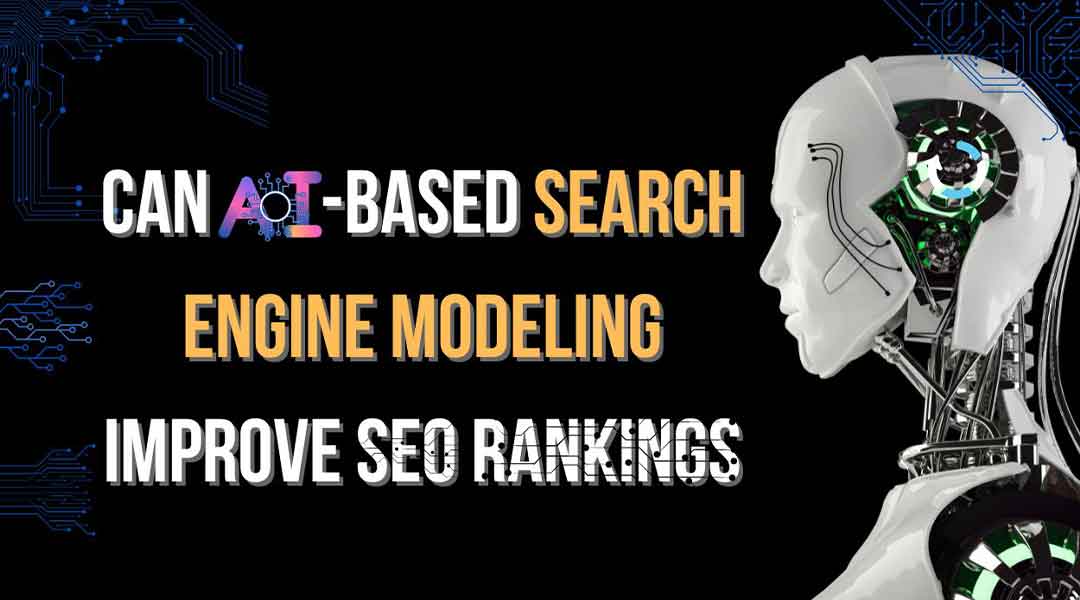Artificial intelligence has taken the digital marketing world by storm. AI-based search engine models are the new hotness, with many companies touting their ability to deliver more accurate and personalized results.
Table of Contents
In today’s landscape, AI is no longer a “nice to have” – it’s a necessity. And when it comes to SEO, AI can be a powerful weapon in your arsenal, helping you to improve your rankings and get more traffic.
There are several search engines on the market, but not all of them are created equal. Some are better than others at understanding user intent and delivering relevant results. For example, Google is widely considered the gold standard in search and ranks the highest in terms of accuracy. To appear in Google’s top 10 SERPs (search engine results pages), you need to stand out from the competition. That’s where AI-based SEO comes in. AI-based SEO is all about using artificial intelligence to understand user intent and deliver better results.
Many businesses still use traditional SEO methods, which can be time-consuming and often don’t produce the desired results. AI-based SEO, on the other hand, can help you to get more traffic and improve your rankings in a fraction of the time.
AI-based SEO models are constantly learning and evolving, which means they can keep up with the latest changes in search algorithms. They’re also able to process large amounts of data quickly and accurately, which is a huge advantage when it comes to SEO.
If you’re serious about improving your SEO, you need to use AI-based search engine models. But what exactly is AI-based search engine modeling, and how can it help you improve your SEO?
What is AI-Based Search Engine Modeling?
AI-based search engine modeling is a type of AI that is specifically designed to understand and model search engine algorithms. It does this by constantly analyzing and testing different SEO scenarios.
AI-based search engine models are constantly learning and evolving, which means they can keep up with the latest changes in search algorithms. They’re also able to process large amounts of data quickly and accurately, which is a huge advantage when it comes to SEO.
Here’s what they can do:
Predict and Test SEO Algorithm Changes Before They Hit SERPs
AI-based models can predict how search engine algorithms will change in the future. This means you can test different SEO scenarios and see how they would impact your website before the changes go live.
This is a huge advantage because it allows you to adjust your SEO strategy accordingly and avoid any potential penalties.
Help Get You to the Top Of The Results for Your Target Keywords Faster
We all know that ranking in the top 10 of SERPs is essential for getting traffic to your website. AI-based models can help you get there faster by constantly testing different SEO scenarios and finding the best way to optimize your website for your target keywords.
Lead Your Organization to a Better, Personalized, and Precise SEO Strategy
A good AI-based model will provide you with actionable insights that you can use to improve your SEO strategy. This includes recommendations on which keywords to target, what type of content to create, and how to optimize your website for maximum visibility.
How Does AI-Based Search Engine Modeling Work?
In simplest terms, AI-based search engine modeling works by reversing the process used by search engines. It takes the data from SERPs and analyzes it to determine which ranking factors shape the results.
This data is then used to train the AI model. The AI model is constantly learning and evolving, which means it can keep up with the latest changes in search algorithms.
Let’s say that you want to rank for the keyword “White label SEO.” The AI model will analyze the SERPs for that keyword and look at the ranking factors for the websites that appear in the top results.
It will then use this data to create a simulated SERP for the keyword. This simulated SERP will show you how your website would rank if the current ranking factors remained the same.
However, as we know, ranking factors are constantly changing. The AI model will consider this and adjust the simulated SERP accordingly. This means that you’ll always have an up-to-date view of how your website will rank for a particular keyword.
How Can AI-Based Search Engine Modeling Help Your Business?
To succeed in today’s cutthroat online world, you need the ability to make precise SEO decisions, leading to faster and more measurable results in SERPs. AI-based search engine modeling can help you do just that by constantly testing different SEO scenarios and providing you with actionable insights.
Here’s what you can do with AI-based search engine modeling:
Determine Exactly Which Ranking Factors Affect Your Target Keywords
Ranking factors are the on-site and off-site elements that search engines consider when determining a website’s ranking. There are over 200 known ranking factors, but not all of them affect every keyword.
Consider a scenario where you try to rank for the keyword “content marketing.” After running an AI-based SEO model, you find out that the main ranking factors for this keyword are:
- The number of backlinks pointing to your website
- The quality of the content on your website
- The amount of social media engagement your website receives
This information is extremely valuable because it means you know exactly where you need to focus your efforts. In this example, you need to focus on building backlinks, creating high-quality content, and increasing social media engagement.
Thus, AI-based search engine modeling can help you focus your efforts on the ranking factors that matter the most for your target keywords.
Prioritize Tasks That Matter the Most for Improving Rankings
Once you know which ranking factors will have the biggest impact on your rankings, you can prioritize the tasks that will lead to the most noticeable results.
This is extremely useful because it means you can save time by not working on tasks that don’t have a big impact on your rankings.
Let’s go back to the previous example. If you want to rank for the keyword “content marketing.”
Now you already know the three ranking factors, which means you need to focus on tasks that will help you to improve these factors. For example, you could:
- Build backlinks by guest blogging on high-authority websites
- Create high-quality blog posts and infographics
- Increase social media engagement by running social media ads
In this case, you would prioritize tasks such as building backlinks and creating high-quality content. Tasks such as optimizing your website for on-page SEO and running social media ads would be less important and could be given a lower priority.
Stay Ahead Of Google Algorithms Changes
Google makes hundreds of algorithm changes every year, and it can be difficult to keep track of all these changes and determine how they will affect your website’s rankings. AI-based SEO models can help you to stay ahead of the curve by constantly testing different scenarios and giving you an up-to-date view of how your website will be affected.
It enables you to make changes to your website before the algorithm change goes live and affects your rankings. As a result, you can avoid any negative impact on your traffic and revenue.
Optimize Your Link Flow
Your website’s link flow is how your internal and external links point to different pages on your website. The way you optimize your link flow can have a big impact on your website’s rankings.
AI-based SEO models can help you optimize your link flow by constantly testing different scenarios and giving you measurable insights. For example, you may find out that your website’s link flow is not pointing to your top landing pages.
Once you know this, you can change your link flow and ensure it points to your most important pages. This will help to improve your website’s overall link equity and improve your rankings.
Understand How Changes to Your Site Will Affect SEO
Maintaining a website requires constant changes, such as adding or removing pages, changing the design, or updating the content. Most marketers do not consider how these changes will affect their website’s SEO.
AI-based SEO models can help you to understand how these changes will impact your website’s rankings and frees you up to focus on other tasks. In this way, AI-based SEO provides a valuable safety net that can help you to avoid any potential ranking.
Learn How Competitor’s Website Changes Will Affect SERPs
Apart from understanding how your own website changes will affect your rankings, you can also use predictive analysis to understand how your competitor’s website changes will affect SERP rankings.
It will help you to stay one step ahead of your competition and take measures to ensure that their changes do not negatively impact your own website’s rankings.
AI-based search modeling is an essential tool for any SEO professional. It can help you to improve your website’s rankings, avoid potential ranking drops, and stay ahead of your competition. If you’re not using AI-based SEO models, you’re at a disadvantage. Start using AI-based models today to take your SEO to the next level.










One comment
Joseph Chu
October 27, 2022 at 12:33 pm
I’m studying more about AI technology and this article is such a great addition to my AI knowledge journal. I will definitely bookmark this!
Comments are closed.